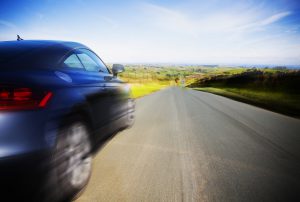How To Cooperate With The Cops
 Michael Babboni
Car Accidents
Generally speaking, the police are your friends. Their job is to keep the peace, and that means dealing with criminals both violent and white-collar, with troublemakers who cause public disturbances, and with reckless individuals who put both themselves and others at risk.
Michael Babboni
Car Accidents
Generally speaking, the police are your friends. Their job is to keep the peace, and that means dealing with criminals both violent and white-collar, with troublemakers who cause public disturbances, and with reckless individuals who put both themselves and others at risk.However, if you find yourself dealing with the police directly, either at a routine traffic stop or because he or she is taking statements at the scene of an accident, you should also remember that the police are not automatically on your side, either. As such, you should be careful regarding what you say and do while they are around.
Be Polite
Remember, police officers are people, too. That means they can feel insulted and offended like anybody else, and that they can appreciate a little kindness, too. You should be ready to present your identification when they ask for it, and you should be willing to follow any reasonable instructions they give you.
If you’re being stopped by the police, you should pull over as soon and as far onto the shoulder as possible. Keep your hands on your steering wheel where the officer can see them, turn on your dome light if it’s dark, and don’t reach for your license and registration until the officer asks for them – moving around without being asked will make the officer both nervous and suspicious.
Never Admit Guilt (Or Fault)
If a police officer arrests you, he or she must read you the Miranda rights, which are the right to remain silent and the right to an attorney, before a formal interrogation. However, you should still be careful what you say even if you aren’t read your rights because the officer will keep track of any information you volunteer before an arrest, plus the Miranda ruling only applies to criminal cases, not to civil ones.
If you say that you’re at fault for a traffic accident, it may be enough to close the case against you without any further investigation. Even if you think that you are at fault, you may be incorrect. The other driver may have been distracted, on his or her phone, or inebriated, and you will never know for certain because no one will ever bother to find out.
At the same time, if there’s no other cars involved you should still avoid saying too much. At a traffic stop, you should allow the officer to do all the talking, and the proper answers to the classic questions, “Do you know why I stopped you?” and “Do you know how fast you were going?” are “No” and “Yes” respectively. Beyond that, you should avoid any absolute statements and simply let the officer know that you understand what he or she is saying. If the officer asks you any other questions, you do not have to answer them (although you should still be polite about declining).
Don’t Give Them An Excuse
A police officer doesn’t need much probable cause to search your vehicle. Based on the idea that the crime scene (the car) could disappear at any moment, an officer needs only the hint of suspicion to perform an on-site search. You could provide this hint by simply rummaging around for your insurance card before the officer reaches your window or by hunching over in your seat in an odd position.
At the same time, if you’re involved in an accident, you should avoid being argumentative with anyone else. Simply state your version of events calmly and don’t interrupt the other witnesses when it’s their turn. If you have a problem with what they say, you should wait until they’re done to clarify or contradict their statement. If you behave too aggressively, the officer may suspect that you’re being defensive or possibly on drugs.
Ultimately, police officers are individuals, just like everyone else. They have a certain amount of training and a certain amount of authority which makes them more dangerous than an ordinary citizen, but if you treat them like a human being, then it’s likely they’ll treat you the same way.
